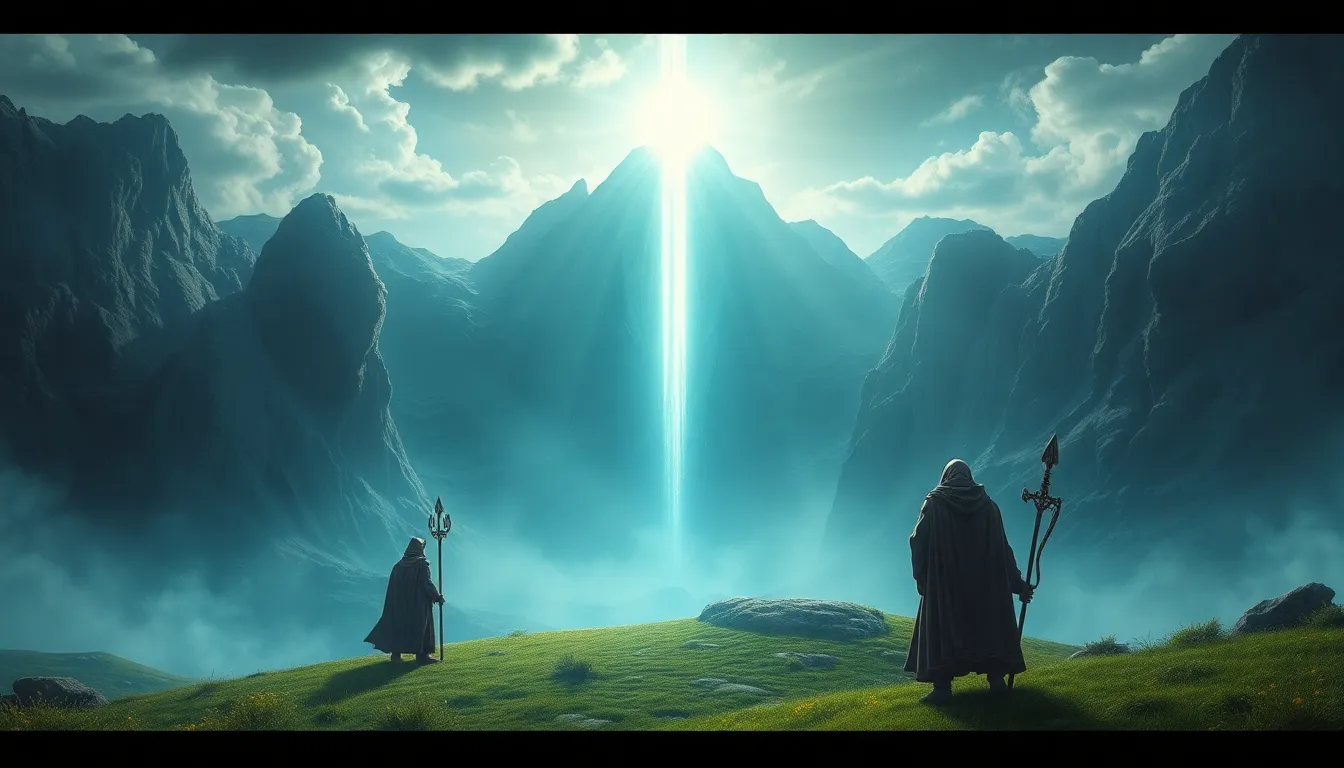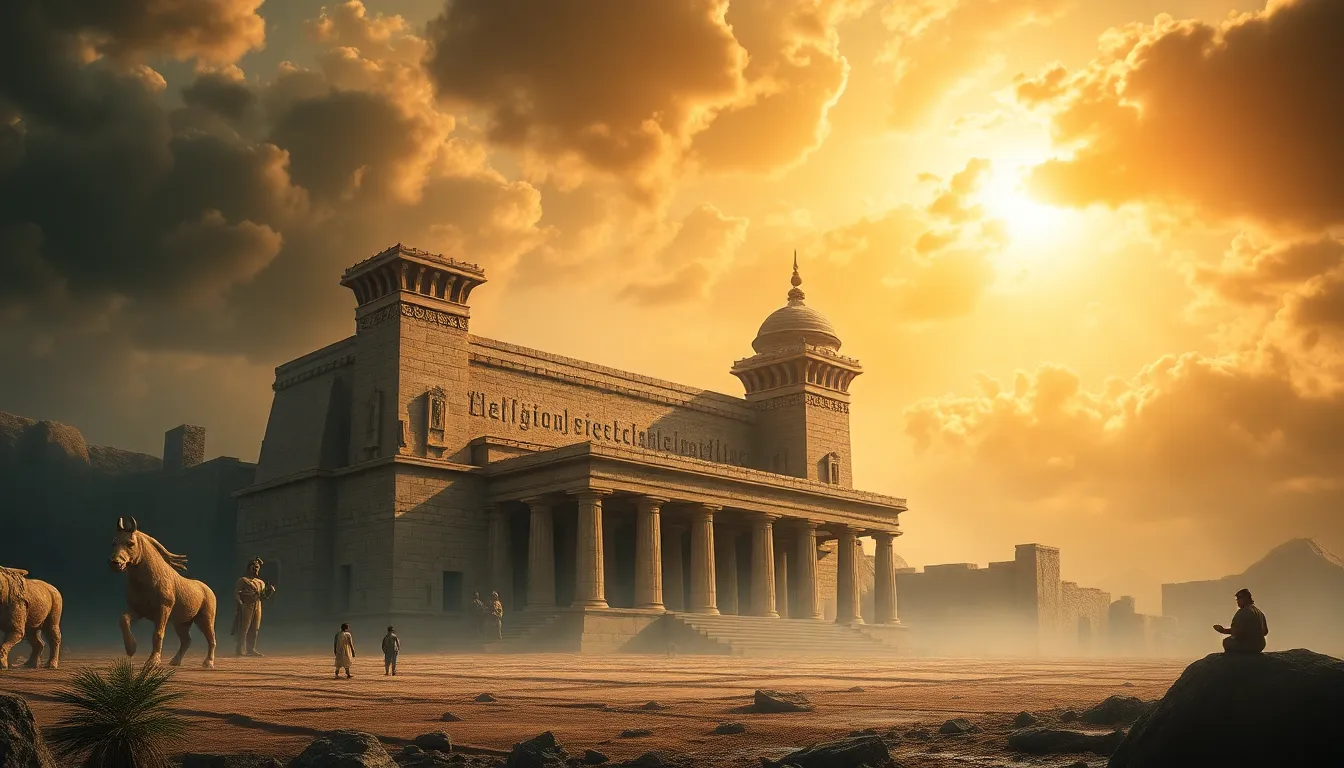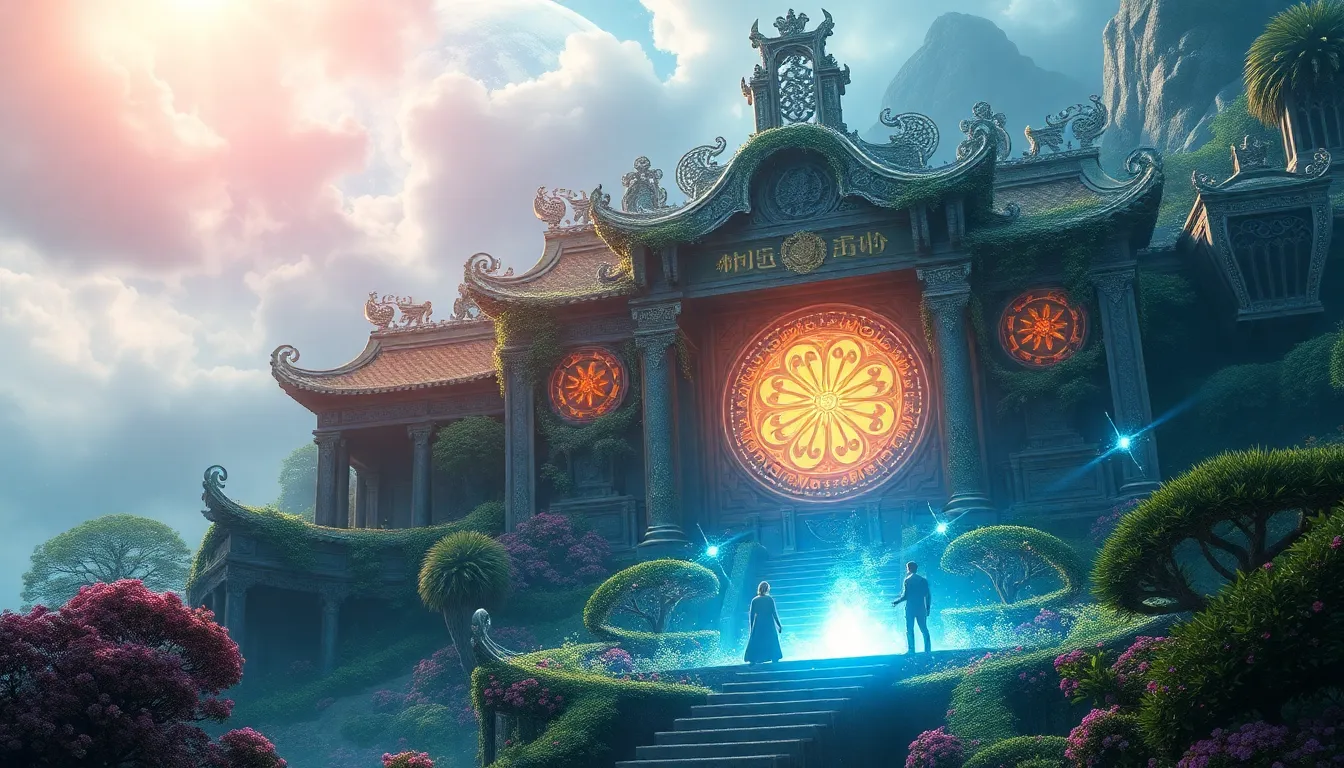The Kingdom of the Forgotten Heroes: Myths of Valor and Sacrifice
I. Introduction to the Kingdom of the Forgotten Heroes
The Kingdom of the Forgotten Heroes is a metaphorical realm where tales of valor and sacrifice reside, hidden in the annals of history and folklore. It serves as a reminder of the countless individuals who have displayed extraordinary courage, yet remain unrecognized in the mainstream narratives of heroism.
These myths often encompass themes such as valor, sacrifice, and unwavering heroism, reflecting the ideals and values of societies throughout time. By exploring these stories, we can gain a deeper understanding of what constitutes true heroism.
The purpose of this article is to delve into the rich tapestry of heroic myths, uncovering the significance of forgotten heroes and the lessons their stories impart on contemporary society.
II. Historical Context of Heroic Myths
Heroic myths have origins that span across diverse cultures and epochs, each uniquely reflecting the values and struggles of their people. These stories often emerged in times of strife or transition, serving as a source of inspiration and identity.
- A. Origins of heroic myths across cultures: From the epic tales of Gilgamesh in Mesopotamia to the Greek legends of Hercules, heroic narratives have been foundational in shaping cultural identities.
- B. The role of oral tradition in preserving legends: Before the advent of written language, oral storytelling was crucial in passing down heroic tales, allowing each generation to learn from the valor of their predecessors.
- C. The evolution of hero myths over time: As societies evolve, so too do their heroes. Modern interpretations often reflect contemporary values, highlighting the dynamic nature of heroism.
III. Defining Valor: Characteristics of a True Hero
Valor is a central theme in heroic myths, embodying the qualities that define a true hero. Traditional narratives often depict heroes as larger-than-life figures, while modern interpretations may present a more nuanced view.
- A. Traits that embody valor in heroic tales: Common characteristics include bravery, selflessness, resilience, and the ability to inspire others.
- B. Comparison of traditional vs. modern definitions of heroism: Traditional heroes often engage in grand battles or quests, while modern heroes may be found in everyday acts of courage and kindness.
- C. The impact of societal values on hero characterization: As societal values shift, so do the characteristics associated with heroism, reflecting what is revered in a particular culture at a given time.
IV. Sacrifice: The Ultimate Act of Heroism
Sacrifice is often considered the pinnacle of heroism, representing the willingness to give up one’s own safety or life for a greater cause.
- A. Different forms of sacrifice in heroic myths: Sacrifice can take many forms, such as physical sacrifice in battle, emotional sacrifice for loved ones, or the loss of personal dreams for the benefit of others.
- B. Notable examples of sacrifice from various cultures: Heroes like Joan of Arc, who fought for her country at the cost of her life, or the selfless acts of soldiers throughout history, exemplify this theme.
- C. The psychological and moral implications of sacrifice: Sacrifice raises profound questions about duty, morality, and the human condition, often prompting individuals to reflect on their own values.
V. The Forgotten Heroes: Who Are They?
Forgotten heroes are those whose remarkable deeds have faded from public memory, often overshadowed by more prominent figures.
- A. Criteria for being labeled a “forgotten hero”: Typically, these individuals have made significant contributions to society but lack recognition in history books or popular culture.
- B. Case studies of lesser-known heroes throughout history: Figures like Harriet Tubman, who led enslaved people to freedom, or the unsung soldiers of various wars, exemplify this category.
- C. The importance of recognizing these figures in modern society: Acknowledging forgotten heroes can inspire new generations and foster a more inclusive understanding of history.
VI. The Role of Mythology in Shaping National Identity
Myths of valor significantly influence cultural narratives and national identity, often serving as a foundation for pride and unity within communities.
- A. How myths of valor influence cultural narratives: National myths often celebrate heroic figures who embody the ideals of the nation, creating a shared sense of identity.
- B. The relationship between mythology and national pride: Celebrating heroes can bolster national pride, fostering a sense of belonging among citizens.
- C. Examples of countries that celebrate forgotten heroes in their history: Countries like Vietnam honor their unsung heroes, which helps to build a cohesive national narrative.
VII. The Influence of Literature and Art on Heroic Myths
Literature and art play a crucial role in shaping the portrayal of heroes, often bringing forgotten figures back into public consciousness.
- A. Analysis of key literary works that feature forgotten heroes: Novels, poems, and plays often resurrect the stories of lesser-known heroes, offering new perspectives on their contributions.
- B. The portrayal of heroes in visual arts and cinema: Films and artworks can immortalize forgotten heroes, introducing them to new audiences and inspiring admiration.
- C. The impact of modern storytelling on the perception of heroism: Today’s storytelling mediums often redefine heroism, showcasing complexity and depth in characters previously deemed heroic.
VIII. Lessons Learned from the Myths of Valor and Sacrifice
Heroic myths serve as vessels for moral teachings and societal values, conveying lessons that resonate across generations.
- A. Morals and teachings embedded in heroic myths: Many myths emphasize virtues such as courage, loyalty, and perseverance, encouraging individuals to emulate these traits.
- B. How these lessons apply to contemporary society: In a world fraught with challenges, the lessons from heroic myths can inspire individuals to act with integrity and courage.
- C. The relevance of heroism in today’s world: As society evolves, the need for heroes—both in traditional and modern forms—remains a constant, inspiring change and progress.
IX. Reviving the Legacy: Honoring Forgotten Heroes
Efforts to recognize and honor forgotten heroes are underway worldwide, emphasizing the importance of their stories in contemporary society.
- A. Initiatives and movements aimed at recognizing forgotten heroes: Various organizations work to restore the legacies of unsung heroes through education, memorials, and public awareness campaigns.
- B. The role of education in preserving heroic myths: Educational programs that focus on diverse histories can help illuminate the stories of forgotten heroes for future generations.
- C. Community efforts to celebrate local heroes: Local initiatives often highlight the contributions of everyday heroes, fostering a sense of community pride and connection.
X. Conclusion: The Enduring Power of Heroic Myths
The Kingdom of the Forgotten Heroes serves as a poignant reminder of the myriad individuals who have shaped our world through acts of valor and sacrifice. By exploring these myths, we can not only honor those who have been overlooked but also draw inspiration from their stories to confront the challenges of our own time.
As we revive the legacies of these forgotten heroes, we enrich our understanding of heroism and its vital role in shaping societies. The enduring power of heroic myths lies not only in their ability to inspire but also in their capacity to unite us in the shared struggle for a better world.



